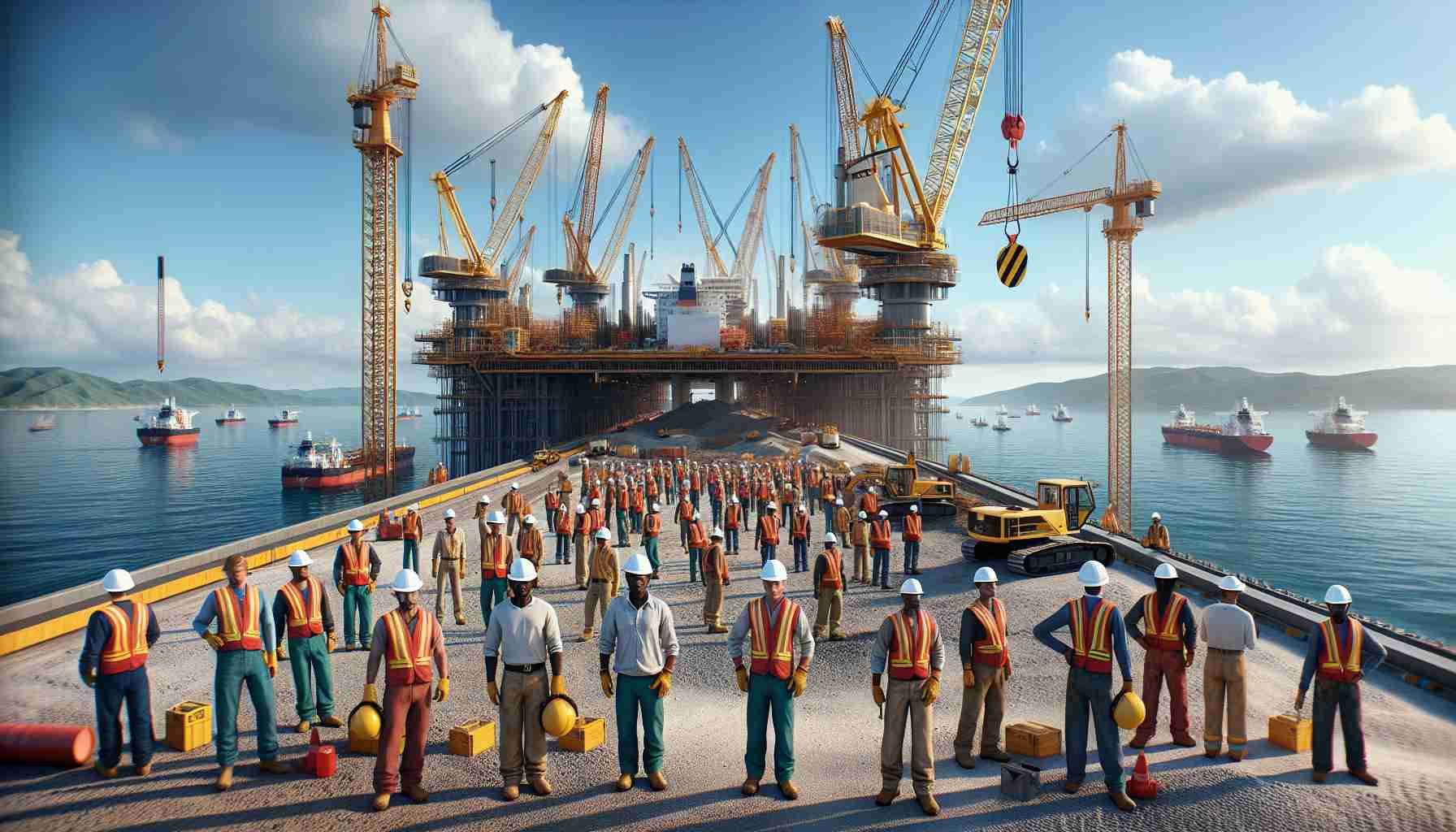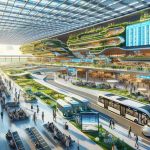In an exciting development for Brazil’s shipping industry, construction is set to commence on a new deepwater terminal on Wednesday. This project aims to enhance the country’s ability to accommodate very large crude carriers (VLCCs), which are essential for transporting significant volumes of liquid bulk cargo.
Porto Central, the organization behind the initiative, has announced that the first phase will focus on establishing the necessary infrastructure for a specialized terminal. This terminal will support ship-to-ship (STS) operations, allowing for the efficient transfer of resources between large vessels. Such capabilities are crucial for improving trade efficiency and increasing Brazil’s exports.
Importantly, this construction is part of a broader multipurpose port development plan located in the Presidente Kennedy region. With an investment of approximately BRL 2.6 billion, the project represents a substantial commitment to enhancing Brazil’s maritime facilities, addressing the growing demand for large-scale shipping solutions.
As the construction progresses, the terminal is expected to significantly boost local economies while positioning Brazil as a key player in the global shipping arena. The initiative holds promise not only for increased shipping capacity but also for fostering investment and job creation within the region, demonstrating Brazil’s ongoing dedication to improving its infrastructure and expanding its influence in international trade.
New Deepwater Terminal Construction Begins in Brazil: A Significant Step for Maritime Trade
In a pivotal moment for Brazil’s maritime logistics sector, construction has officially commenced on a new deepwater terminal designed to accommodate very large crude carriers (VLCCs) and enhance the country’s shipping capabilities. This project, spearheaded by Porto Central, signifies a major investment in Brazil’s infrastructure, with an estimated cost of BRL 2.6 billion allocated for its realization.
Key Questions and Answers
1. **What are the primary objectives of the new terminal?**
– The terminal aims to improve the efficiency of liquid bulk cargo transport by creating specialized facilities for ship-to-ship (STS) operations, streamlining the transfer of resources between large vessels and facilitating faster shipping times.
2. **How will this development impact Brazil’s economy?**
– The deepwater terminal is anticipated to spur local economic growth through job creation, increased shipping operations, and enhanced trade routes. It is expected to attract international shipping companies, boosting investments in the region.
3. **What are the environmental considerations associated with the terminal’s construction?**
– Environmental impact assessments are crucial, as the terminal’s development may affect local ecosystems. Stakeholder engagement and sustainable practices will be pivotal in mitigating potential environmental damage.
Challenges and Controversies
While the project is ambitious, several challenges and controversies surround it.
– **Infrastructure Requirements:** The construction of a deepwater terminal necessitates significant upgrades to the current infrastructure, including roads, transport links, and supporting facilities.
– **Environmental Concerns:** The potential impact on marine and coastal ecosystems is under scrutiny. There are fears that increased shipping activity could lead to ecological degradation and pollution.
– **Local Community Engagement:** Engaging local communities and addressing their concerns regarding the project’s impact on livelihoods and the environment is essential for gaining support and ensuring sustainable development.
Advantages of the New Deepwater Terminal
1. **Enhanced Shipping Capacity:** The terminal will substantially increase Brazil’s ability to handle larger vessels, catering to the demands of the global oil market.
2. **Economic Growth:** Job creation and investment influx will likely stimulate the local economy, benefiting various sectors beyond logistics.
3. **Role in Global Trade:** By accommodating VLCCs, Brazil can strengthen its position in international trade networks, improving export efficiency.
Disadvantages and Potential Risks
1. **Environmental Impact:** The terminal’s construction could pose risks to biodiversity and marine habitats, necessitating careful planning and management.
2. **Displacement of Communities:** Local populations could face displacement or changes to their livelihoods as a result of new developments.
3. **Over-reliance on Shipping:** There is a risk that the economy could become over-reliant on shipping and the fossil fuel industry, which poses longer-term sustainability concerns.
As Brazil embarks on this ambitious project, it must navigate the balance between economic expansion and environmental responsibility. The deepwater terminal represents not just a step forward for Brazilian shipping, but also a broader commitment to elevating the country’s standing in global trade while safeguarding local interests.
For further information on Brazil’s economic initiatives, visit Economy Ministry.


